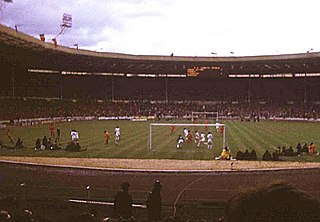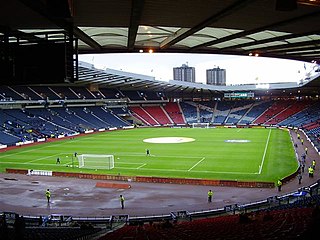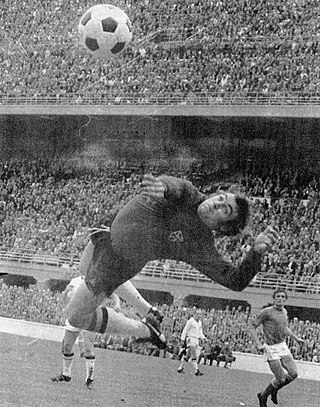Final table
| Pos | Team | Pld | W | D | L | GF | GA | GD | Pts | Qualification | | | | | |
|---|---|---|---|---|---|---|---|---|---|---|---|---|---|---|---|
| 1 | 6 | 5 | 0 | 1 | 16 | 6 | +10 | 10 | Advance to quarter-finals | — | 4–0 | 4–3 | 2–0 | ||
| 2 | 5 | 2 | 1 | 2 | 7 | 8 | −1 | 5 | 0–1 | — | 4–1 | 2–1 | |||
| 3 | 5 | 2 | 1 | 2 | 7 | 9 | −2 | 5 | 1–0 | Void [lower-alpha 1] | — | 2–1 | |||
| 4 | 6 | 0 | 2 | 4 | 5 | 12 | −7 | 2 | 2–5 | 1–1 | 0–0 | — |
Group 3 of the UEFA Euro 1968 qualifying tournament was one of the eight groups to decide which teams would qualify for the UEFA Euro 1968 finals tournament. Group 3 consisted of four teams: Soviet Union, Greece, Austria, and Finland, where they played against each other home-and-away in a round-robin format. The group winners were the Soviet Union, who finished 5 points above Greece.
| Pos | Team | Pld | W | D | L | GF | GA | GD | Pts | Qualification | | | | | |
|---|---|---|---|---|---|---|---|---|---|---|---|---|---|---|---|
| 1 | 6 | 5 | 0 | 1 | 16 | 6 | +10 | 10 | Advance to quarter-finals | — | 4–0 | 4–3 | 2–0 | ||
| 2 | 5 | 2 | 1 | 2 | 7 | 8 | −1 | 5 | 0–1 | — | 4–1 | 2–1 | |||
| 3 | 5 | 2 | 1 | 2 | 7 | 9 | −2 | 5 | 1–0 | Void [lower-alpha 1] | — | 2–1 | |||
| 4 | 6 | 0 | 2 | 4 | 5 | 12 | −7 | 2 | 2–5 | 1–1 | 0–0 | — |
| Soviet Union | 4–0 | |
|---|---|---|
| Report |
| Soviet Union | 2–0 | |
|---|---|---|
| Report |
| Finland | 2–5 | |
|---|---|---|
| Report |
|
| Austria | 1–0 | |
|---|---|---|
| Report |
| Greece | 0–1 | |
|---|---|---|
| Report |
|
There were 37 goals scored in 12 matches, for an average of 3.08 goals per match. [note 3]
4 goals
3 goals
2 goals
1 goal

The 1966–67 season of the European Cup football club tournament was won by Celtic for the first time in the final against Internazionale, who eliminated defending champions Real Madrid in the quarter-finals, making them the first British team, as well as the first and last Scottish team to date, to win the coveted trophy. The Soviet Union entered its champion for the first time this season.

The 1967–68 European Cup was the 13th European Cup, UEFA's premier club football tournament. The competition was won by Manchester United, who beat Benfica 4–1 in the final at Wembley Stadium, London. The European Cup title marked the tenth year since the Munich air disaster, in which eight United players were killed and their manager, Matt Busby, was left close to death, the day after earning a place in the semi-finals of the 1957–58 competition. It was also the first time an English side had won the trophy.
The 1961–62 season of the European Cup Winners' Cup club football tournament was won by Atlético Madrid of Spain in a replayed final against holders Fiorentina. It was the first season of the tournament to be directly organised by UEFA.

The 1975–76 season of the European Cup football club tournament was won for the third consecutive time by Bayern Munich in the final against Saint-Étienne at Hampden Park, Glasgow. This was the first time that Bayern Munich participated as last year's Cup winners only.

The 1980–81 European Cup was the 26th season of the European Cup football club tournament, and was won for a third time by Liverpool, who beat six-time champions Real Madrid in the final. In the 11 seasons up to and including this one, there were only four winners of the European Cup, but there were eleven different runners-up. This sequence was ended the following year, when Bayern Munich lost to first-time finalists Aston Villa.

The 1981–82 season of the European Cup football club tournament was won for the only time by Aston Villa in the final against Bayern Munich. It was the sixth consecutive year that an English club won the competition. Liverpool, the defending champions, were eliminated by CSKA Sofia in the quarter-finals.
The 1993–94 UEFA Cup was the 23rd season of Europe's then-tertiary club football tournament organised by UEFA. The final was played over two legs at the Ernst-Happel Stadion, Vienna, Austria, and at San Siro, Milan, Italy. The competition was won by Italian club Internazionale, who beat Austria Salzburg of Austria by an aggregate result of 2–0, to claim their second UEFA Cup title in a span of four years.
The 1989–90 UEFA Cup was the 19th season of the UEFA Cup, the secondary club football competition organised by the Union of European Football Associations (UEFA). The final was played over two legs at the Stadio Comunale Vittorio Pozzo, Turin, Italy, and at the Stadio Partenio, Avellino, Italy. The competition was won by Juventus, who defeated fellow Italian team Fiorentina by an aggregate result of 3–1 to claim their second UEFA Cup title.
The 1988–89 UEFA Cup was the 18th season of the UEFA Cup, the secondary club football competition organised by the Union of European Football Associations (UEFA). The final was played over two legs at the Stadio San Paolo, Naples, Italy, and at the Neckarstadion, Stuttgart, Germany. The competition was won by Napoli of Italy, who defeated Stuttgart of Germany by an aggregate result of 5–4 to claim their only major European title.
The 1987–88 UEFA Cup was the 17th season of the UEFA Cup, the secondary club football competition organised by the Union of European Football Associations (UEFA). The final was played over two legs at the Estadi de Sarriá, Barcelona, Spain, and at Ulrich-Haberland Stadion, Leverkusen, Germany. The competition was won by Bayer Leverkusen of Germany, who defeated Español of Spain on penalty kicks with an aggregate result of 3–3.
The 1983–84 UEFA Cup was the 13th season of the UEFA Cup, the third-tier club football competition organised by the Union of European Football Associations (UEFA). The final was played over two legs at the Constant Vanden Stock Stadium, Brussels, Belgium, and at White Hart Lane, London, England. Tottenham Hotspur of England defeated title holders Anderlecht of Belgium, on penalties, after the final finished 2–2 on aggregate, to win the competition for the second time.
The 1979–80 UEFA Cup was the ninth season of the UEFA Cup, the third-tier club football competition organised by UEFA. The final was played in West Germany over two legs, at the Bökelbergstadion., Mönchengladbach, and at the Waldstadion, Frankfurt. It was won by Eintracht Frankfurt, who defeated title holders and fellow West German side Borussia Mönchengladbach on the away goals rule after a 3–3 aggregate draw to claim their first UEFA Cup title.
The 2006 FIFA World Cup qualification UEFA Group 2 was a UEFA qualifying group for the 2006 FIFA World Cup. The group comprised Albania, Denmark, Georgia, Greece, Kazakhstan, Turkey and Ukraine.

The 2013–14 UEFA Youth League was the first season of the UEFA Youth League, a European youth club football competition organised by UEFA. It was contested by the under-19 youth teams of the 32 clubs qualified for the group stage of the 2013–14 UEFA Champions League.
The UEFA Euro 2016 qualifying Group F was one of the nine groups to decide which teams would qualify for the UEFA Euro 2016 finals tournament. Group F consisted of six teams: Greece, Hungary, Romania, Finland, Northern Ireland, and Faroe Islands, where they played against each other home-and-away in a round-robin format.
The 1955–60 Central European International Cup was the final edition of the Central European International Cup. It was replaced by the European Nations Championship. Yugoslavia took part for the first time.
Group 8 of the UEFA Euro 1976 qualifying tournament was one of the eight groups to decide which teams would qualify for the UEFA Euro 1976 finals tournament. Group 8 consisted of four teams: West Germany, Greece, Bulgaria, and Malta, where they played against each other home-and-away in a round-robin format. The group winners were West Germany, who finished two points above Greece.
Group 3 of the UEFA Euro 1972 qualifying tournament was one of the eight groups to decide which teams would qualify for the UEFA Euro 1972 finals tournament. Group 3 consisted of four teams: England, Switzerland, Greece, and Malta, where they played against each other home-and-away in a round-robin format. The group winners were England, who finished two points above Switzerland.
Group 6 of the UEFA Euro 1972 qualifying tournament was one of the eight groups to decide which teams would qualify for the UEFA Euro 1972 finals tournament. Group 6 consisted of four teams: Italy, Austria, Sweden, and Republic of Ireland, where they played against each other home-and-away in a round-robin format. The group winners were Italy, who finished three points above Austria.

The UEFA Euro 1972 quarter-finals was the last round of qualifying competition for UEFA Euro 1972. They were contested by the eight group winners of the qualifying tournament. The winners of each of four home-and-away ties qualified for the finals tournament in Belgium. The matches were played on 29–30 April and 13–14 May 1972, with a replay on 17 May 1972.